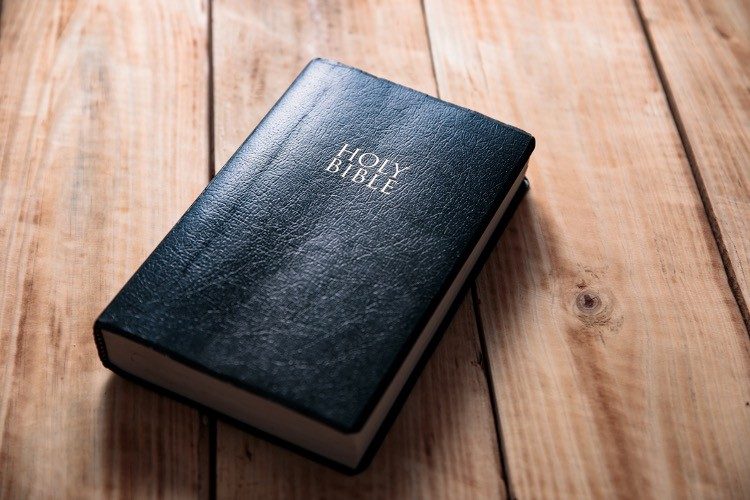
Attorneys for the American Center for Law and Justice (ACLJ), founded by Pat Robertson (who served as head of the Christian Broadcasting Network (CBN) and hosted the 700 Club), scored another victory last week. As secular influence on the culture continues to increase, the ACLJ has its hands full defending the First Amendment, and last week’s victory in a religious discrimination case in Minnesota is just the latest.
In previous victories, tenants in senior housing projects were banned from holding religious meetings. But in Minnesota, tenants “were discriminated against in a different way,” said the ACLJ:
They were still technically allowed to meet but [were] subjected to different rules and told that they couldn’t share their events with the community the way any other [secular] event would be shared.
As the public interest law firm explained,
Our clients hold a Bible study in their apartment complex. The complex’s common areas are open to all residents and are reserved to host a variety of resident events, such as card games, board games, and bridge clubs.
There is also a community calendar that lists a variety of events, including special events, bingo, birthday parties, different games, swim groups, chair yoga, blackjack, happy hour, etc.
Initially, our clients held their Bible studies in peace and were able to advertise the study on the community calendar, community boards, and the community room door, notifying others that the room had been reserved for their Bible study.
But then the management changed the rules: The group’s name could be considered “offensive” to others in the complex and so it was told to remove any notices of their meeting from the community bulletin board. In addition, a portable blackboard that announced the Bible study was confiscated.
Accordingly,
Our clients were thus put in a position where they could still technically meet, but unlike any other group, they could not properly reserve the room, let other residents know they were meeting, or put up any signs to let people know where the meeting was being held.
When our clients asked management what to do about the situation, they were told that to be treated like other groups and put their Bible study on the calendar, they needed to change the name to a “book study” or “ancient study.”
That’s when ACLJ entered the fray. It sent a letter demanding that management reverse its policies, and included strong language referring not only to the First Amendment — Congress shall make no law respecting an establishment of religion, or prohibiting the free exercise thereof; or abridging the freedom of speech…” — but also statements from the Federal Housing Administration (FHA) and the Department of Justice (DOJ):
We pointed out that the FHA prohibits apartment complexes, condominiums, associations, and the like from discriminating against residents or homeowners for their religious expression.
The FHA also prohibits apartment complexes from treating religious activities differently, such as prohibiting the use of common rooms for religious events or activities where non-religious events or activities are permitted or by subjecting religious gatherings to different rules than those applicable to secular gatherings.
For good measure, the attorneys referred to the DOJ’s statement “Know Your Rights: Federal Law Protecting Religious Freedom,” which is very specific: “No one may be discriminated against because of their religious beliefs. This includes equal access to all the benefits of housing: someone could not, for example, be excluded from reserving a common room for a prayer meeting when the room may be reserved for various comparable secular ones.”
The management backed down and changed its policies. Not only is the Bible study group allowed to announce its meetings in a new resident “calendar,” it also has erected a new community bulletin board where the group may post flyers announcing the details of the Bible study time and location. Wrote ACLJ: “In other words, as the law requires, our clients are no longer treated differently because of their faith.”
In January, the ACLJ celebrated a victory in a similar case in Texas. Fairoaks Senior Housing in Denton declared that a tenant wanting to host a Bible study in its community center was not in compliance with its policies. When ACLJ entered the picture, management demurred but said the Bible study could only be held “if its members refrained from saying anything that might ‘possibly be perceived as racism and discrimination.’”
Fairoaks went on to say that if “any possible violations occur and/or complaints of feeling offended and discriminated against are filed … then [Fairoaks would] have no choice but to ask that this class be moved to a private location.”
Suffice to say, with the entry of ACLJ and its persistence in righting this wrong, management made “mutually agreed-upon changes to their policies.”
The same attempt to discriminate with the same happy result occurred just before Christmas last year. Management of a senior housing center issued a policy banning the display of all religious items on their doors. As ACLJ noted, “Upon being notified at this conduct, the ACLJ promptly contacted the complex’s management and fired off a demand letter notifying them of their unlawful policies. Our quick action led to a decisive victory for the residents of the senior living center, just in time for Christmas.”
ACLJ also celebrated victory in a case of a senior living center in Missouri excluding a Bible study group from the complex’s community center, claiming that some residents might find it offensive. Again a demand letter was sent to management, with a similar favorable result: the complex, wrote ACLJ, “reversed course and … issued a letter to our client stating in writing that she could begin using the common area for her Bible studies again without further delay.”
To be clear, the ACLJ is playing a game of Whack-a-Mole, with the declining culture spreading into every nook and cranny, including the most unlikely of places. Seniors are the most likely to be offended by such incursions into the freedoms of religion and expression, yet the secular culture is determined to rid itself of any residue of Christian expression. The ACLJ is to be commended for confronting those incursions successfully.



